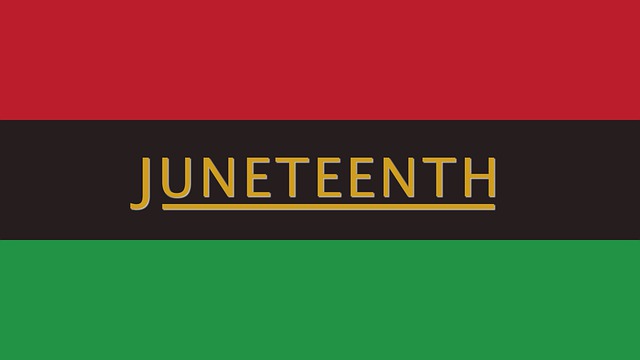 Juneteenth (a combination of June and nineteenth), also known as Freedom Day, Jubilee Day, and Liberation Day, is celebrated annually on the 19th of June to commemorate Union army general Gordon Granger’s reading of federal orders in the city of Galveston, Texas, on 19 June 1865, proclaiming all enslaved persons in Texas were free.
Juneteenth (a combination of June and nineteenth), also known as Freedom Day, Jubilee Day, and Liberation Day, is celebrated annually on the 19th of June to commemorate Union army general Gordon Granger’s reading of federal orders in the city of Galveston, Texas, on 19 June 1865, proclaiming all enslaved persons in Texas were free.
Although the Emancipation Proclamation had formally freed them almost two and a half years earlier, and the American Civil War had largely ended with the defeat of the Confederate States in April, Texas was the most remote of the southern states, with a low presence of Union troops, so enforcement of the proclamation had been slow and inconsistent.
It is considered the longest-running African American holiday and has been called “America’s second Independence Day.” Juneteenth acknowledges African American history and amplifies the magnitude of the culture’s struggle, impact and contribution to American society.
Although Juneteenth was just recognized as a federal holiday, celebrations date back to 1866 and most states and the District of Columbia have passed legislation recognizing it as a holiday or observance. California currently recognizes the third Saturday of June in each year as Juneteenth National Freedom Day: A Day of Observance.
Director Witherell shares: “I am pleased to share that today the President signed an executive order declaring Juneteenth a federal holiday…Juneteenth is a good opportunity to reflect on the history of our country’s treatment of Black Americans, and to consider how our values can help guide us into a more equitable, diverse, and inclusive future.”
Read Director Witherell’s full statement here.
Learn more about this important date in American history and how you can celebrate this year:
Learn:
- PBS: What is Juneteenth?
- Berkeley’s Center for Equity, Gender, and Leadership
- Museum of African Diaspora and the San Francisco Black Chamber of Commerce: ‘Monumental Reckoning’
- San Francisco Juneteenth Weekend 2021
- Juneteenth week in Santa Clara County
- 5th Annual Marin City Juneteenth Festival 2021
Watch:
Texas Institute for the Preservation of History and Culture
- Juneteenth – part 1 (running time 3:42)
- Juneteenth – part 2 (running time 10:01)
- Juneteenth – part 3 (running time 7:00)
Connect: Juneteenth.com
